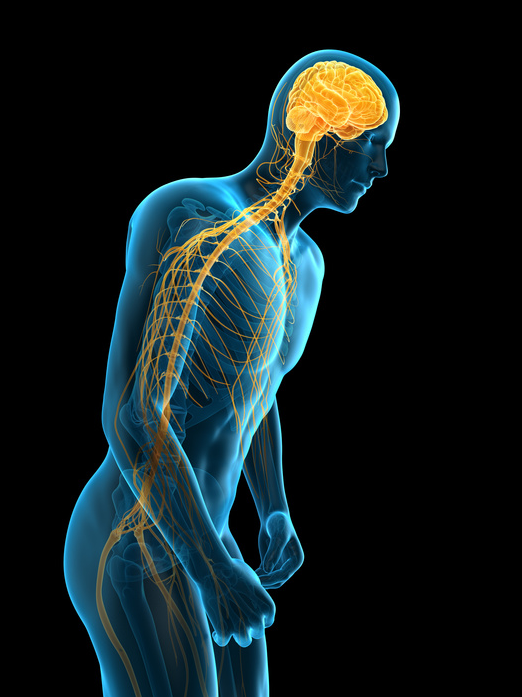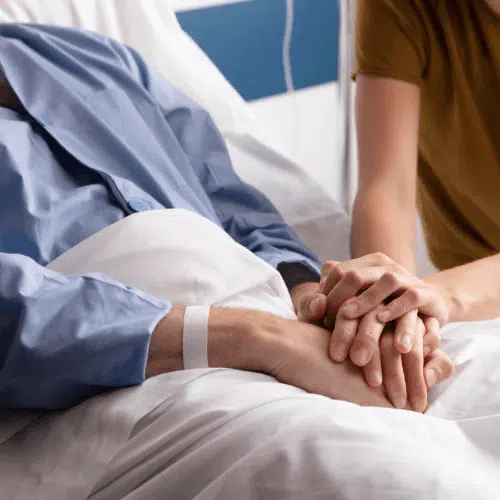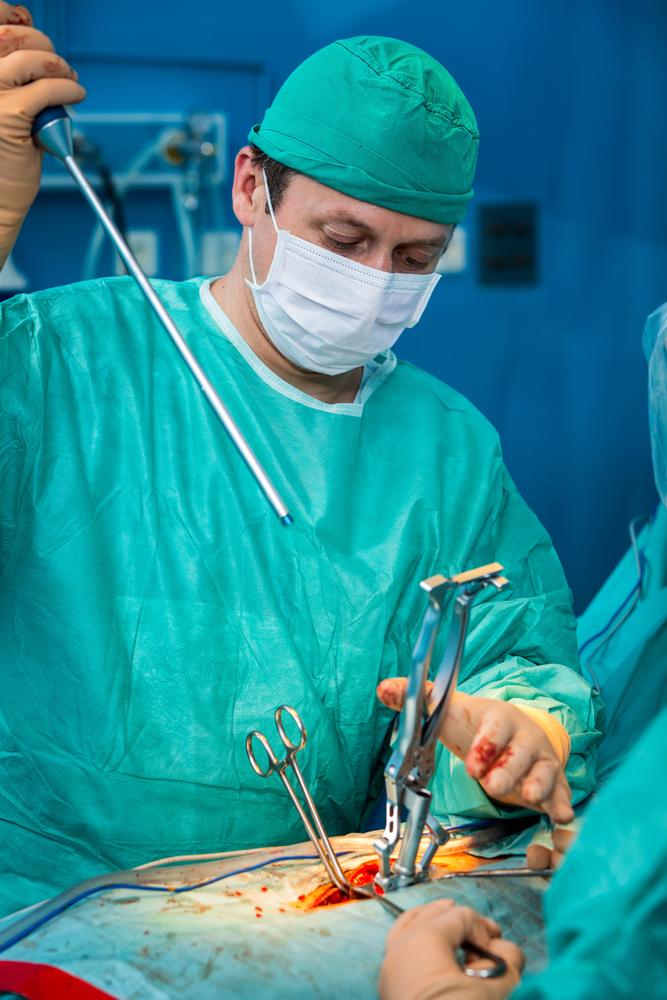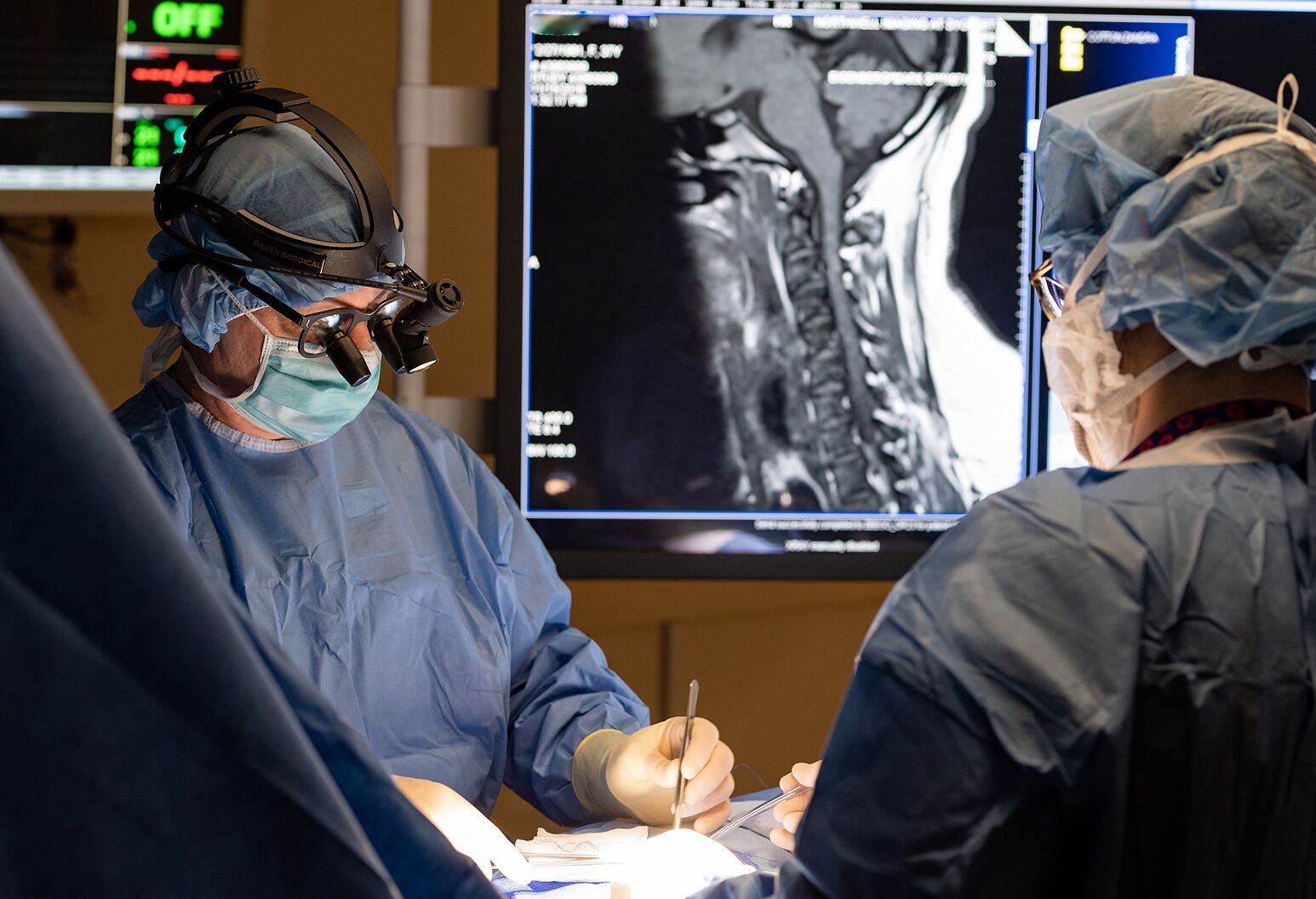Exploring the Factors Behind Needing Spinal Column Surgery for Different Problems
The necessity for spinal column surgery emerges from a variety of conditions that can severely impair a person's top quality of life. Typically run into problems such as degenerative disc illness, herniated discs, and back stenosis typically show up as persistent pain and disabling symptoms. In numerous situations, when traditional therapy options show inefficient, patients may discover themselves considering medical treatment. Recognizing the specific indicators that call for medical factor to consider is essential for both patients and doctor. The effects of these problems expand much past prompt discomfort alleviation, welcoming more exam into the intricacies of back wellness monitoring.
Usual Spinal Column Conditions
Common spine conditions incorporate a range of conditions that affect the vertebral column and its associated frameworks. Among the most widespread problems are degenerative disc illness, herniated discs, spinal constriction, and spondylolisthesis. These conditions can lead to substantial discomfort and functional constraints, affecting the quality of life.
Degenerative disc disease takes place when the intervertebral discs lose hydration and elasticity, causing minimized disc height and raised spine instability. Herniated discs arise when the internal gel-like material of a disc protrudes or leaks via its outer layer, often pressing nearby nerves. Back stenosis is identified by the narrowing of the back canal, which can result in pressure on the spine and nerves. Spondylolisthesis includes the displacement of one vertebra over another, possibly creating nerve compression and pain.
Various other problems such as scoliosis, characterized by an uncommon lateral curvature of the spinal column, and osteo arthritis, which impacts the element joints, also add to spine-related concerns. Each of these conditions may demand differing treatment strategies, including conventional monitoring or surgical intervention, depending upon the extent and influence on the client's daily activities.
Signs Suggesting Surgery
Signs and symptoms that may indicate the need for spine surgery can occur from the various spine problems gone over formerly. Individuals usually experience relentless discomfort that does not enhance with conventional treatments, such as physical therapy or medicine. This pain can manifest as local pain in the back or emit to the limbs, suggesting nerve involvement.
Additionally, pins and needles, tingling, or weakness in the legs or arms can indicate nerve compression, which may demand medical treatment to stop additional neurological degeneration. One more vital symptom is loss of bladder or digestive tract control, typically a sign of cauda equina syndrome, a clinical emergency situation requiring immediate medical assessment.
Sometimes, clients may additionally report considerable difficulty in performing day-to-day activities as a result of instability in the back or incapacitating pain. These useful restrictions, along with modern symptoms, necessitate a detailed analysis by a spine professional.
Eventually, when traditional procedures fail to ease symptoms and lifestyle is drastically impacted, surgical procedure may be taken into consideration to bring back feature, alleviate discomfort, and avoid lasting problems. It is critical that individuals experiencing these signs and symptoms seek expert clinical guidance promptly.

Non-Surgical Therapy Alternatives
Numerous non-surgical therapy options are readily available for individuals experiencing spine-related issues, aiming to alleviate pain and boost functionality without the demand for invasive procedures. These treatments can be customized to the specific problem and severity of signs.
Physical treatment is frequently a first-line approach, concentrating on enhancing core muscles, enhancing versatility, and boosting total spinal health. Hands-on treatment strategies, such as chiropractic care adjustments, can also offer alleviation by straightening the spine and decreasing stress.
Drugs, consisting of non-steroidal anti-inflammatory drugs (NSAIDs) and muscle relaxants, may be prescribed to manage pain and inflammation. Additionally, corticosteroid injections can supply targeted alleviation to impacted areas, specifically for problems like herniated discs or back constriction.

Alternate treatments, such as acupuncture and massage treatment, have actually acquired popularity for their potential to lower pain and promote recovery. Way of living adjustments, including weight monitoring and ergonomic adjustments, play an important role in long-term spinal column health.
For some patients, spine decompression therapy or transcutaneous electric nerve excitement (10S) may supply alleviation by decreasing stress on spine nerves and boosting nerve function, specifically. Jointly, these non-surgical options give a detailed method to taking care of spine-related conditions.

Advantages of Spine Surgery
While non-surgical therapy options can properly handle several spine-related problems, there are circumstances where surgical treatment becomes needed to achieve ideal outcomes. One of the key benefits of spinal column surgical treatment is the potential for considerable discomfort relief. Problems such as herniated discs, back stenosis, and degenerative disc illness can lead to incapacitating pain that might not reply to conventional therapies. Surgical intervention can directly attend to the resource of the pain, providing enduring alleviation.
In addition, spinal column surgical procedure can restore functionality and enhance lifestyle. Several people experience enhanced movement and reduced restrictions in everyday tasks adhering to effective procedures. This reconstruction of feature is critical for people seeking to go back to function, take part in entertainment tasks, or merely enjoy everyday jobs without Recommended Site discomfort.
Additionally, back surgical procedure can protect against more issues linked with untreated spinal conditions. By attending to problems proactively, individuals may prevent much more severe illness that could arise from development of their back problem. Generally, the benefits of spine surgical treatment extend beyond pain relief, including improved mobility, boosted lifestyle, and the prevention of future problems, making it a vital alternative for lots of individuals dealing with considerable spine-related challenges.

Recuperation and Rehab Process
The recuperation and rehab process following back surgical procedure is important for guaranteeing optimal results and enhancing the total high quality of life for patients. Reliable healing begins quickly after the procedure, concentrating on pain wheelchair, management, and wound care - best spine surgeons in st louis mo. Doctor generally advise a combination of physical therapy, medication, and gradual go back to day-to-day activities to assist in recovery
Clients are commonly advised to comply with an organized recovery program tailored to their particular surgical procedure and individual needs. This might consist of targeted workouts to strengthen the core and back muscle mass, boost flexibility, and bring back performance. Adherence to the suggested rehabilitation protocol is vital, as it can dramatically reduce the risk of problems and advertise faster recovery.
It is also important for individuals to keep open interaction with their medical care group throughout the recuperation procedure. Normal follow-up consultations permit the tracking of development, modifications to rehab strategies, and resolving any kind of concerns that may occur. Ultimately, an extensive healing and rehabilitation technique not only aids in physical recuperation yet additionally sustains psychological wellness, empowering patients to restore freedom and go back to their preferred activities with confidence.
Verdict
Finally, recognizing the factors for spinal column surgical treatment is vital in attending to debilitating problems that influence lifestyle. best spine surgeons in st louis mo. Common concerns such as degenerative disc condition, herniated discs, and spine stenosis demand Click Here cautious assessment of symptoms and treatment options. While non-surgical strategies may offer alleviation, surgical treatment commonly ends up being necessary when conventional methods fall short. Eventually, back surgical treatment can restore feature and improve total wellness, emphasizing the relevance of prompt assessment and treatment about his for affected people.
The requirement for back surgery emerges from a range of problems that can drastically hinder a person's quality of life. The implications of these problems extend far past prompt pain alleviation, welcoming further assessment right into the complexities of spinal column wellness monitoring.
Symptoms that may indicate the requirement for back surgical treatment can develop from the various back conditions gone over previously.Furthermore, back surgical procedure can avoid additional difficulties linked with untreated back conditions.In conclusion, recognizing the reasons for back surgery is important in dealing with incapacitating conditions that affect high quality of life.